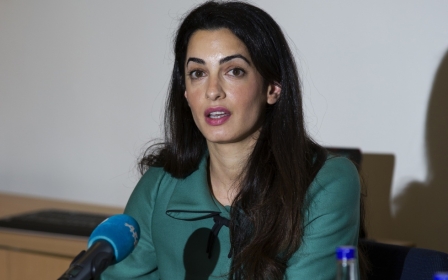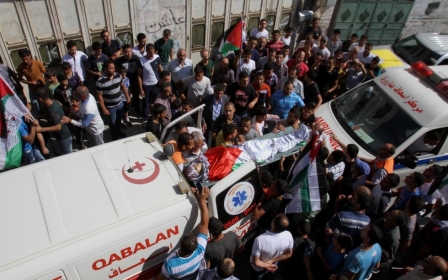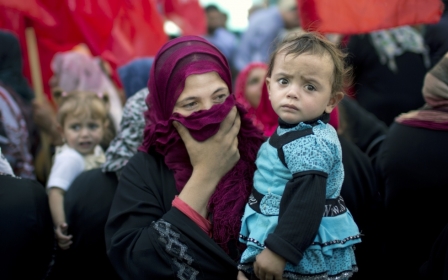The complexities of demilitarisation in Gaza

Throughout decades of colonial violence, Palestinian resistance became contaminated by the politics of concessions, resulting in severe ambiguity with regard to the liberation of Palestine. The unity-government formed prior to Protective Edge was the latest example of such concessions – an agreement between Fatah and Hamas affirming commitment to the compromised and internationally-endorsed two-state solution as opposed to the dismantling of Zionist settler-colonialism.
Emphasising Israel’s superior military power and projecting discourse of defeat upon Hamas, Israeli Director of the Strategic Affairs Ministry Yossi Kuperwasser declared the Palestinian resistance’s decision to consider a ceasefire mediated by Egypt as a “strategic decision” that would force Hamas “to give up – at least temporarily, but hopefully for a long time, their nature as a terrorist organisation.”
However, the misrepresentation of Hamas serves an additional purpose. Kuperwasser added, “Hamas has realised not only that they’re not gaining anything from the continuation of the fire, but that they’re losing a lot.” The statement, reported in the Times of Israel, frames an external imposition demanding the demilitarisation of Gaza, which has been hailed as a desirable objective by Israeli and mainstream media. In perfect concordance with the rhetoric of blame imposed upon Hamas and endorsed internationally both by Israel and its allies, demilitarisation has become an additional, oppressive demand to incarcerate Palestinians, irrespective of whatever decision is agreed upon by the Palestinian resistance.
While Kuperwasser’s comments were uttered within the context of the temporary ceasefire and the Egyptian-mediated talks which have, by now, collapsed, the significance of demilitarisation rhetoric involves wider implications beyond the confines of Israel’s ongoing colonial massacre. Of utmost importance is the international complicity in Israel’s regard – a historical manifestation that continuously consolidates Israel’s permanence both within the geographical context, as well as within the international arena, to the detriment of Palestinians.
The renewed insistence upon armed resistance led Israel and its allies to embark upon a marketing campaign in which demilitarisation is construed as the only solution for Palestinians in Gaza. In return, Gaza is bequeathed with funds and material for reconstructing the enclave destroyed by Israel’s military. To put in succinctly, demilitarisation is another form of bribery to divert resistance towards a path of compromised diplomacy. According to Israel, the resistance factions that are “losing a lot” should abandon armed resistance against colonial violence in order to relinquish the remaining fragments of Palestinian land. In addition, as reported in Haaretz, the international community’s participation is imperative.
“Dismantling the tunnels is a first and necessary step towards demilitarising the strip. A mechanism for preventing the rearmament of terror organisations and a demilitarisation of Gaza has to be part of any solution. The international community should forcefully insist on this.” Netanyahu’s statement as quoted in Haaretz reflects not only Israel’s belligerence, but also the lack of accountability which is a significant characteristic of the international community.
Netanyahu’s comments are blatantly revealing of the correlation between the international community and the persistent, forceful subjugation of countries and people resisting colonial and imperialist violence. Foreign intervention, whether covert or overt, has continuously resulted in the destabilisation of countries in the name of alleged freedom. In the case of Palestine, the consequences may prove to be even more serious.
Since the inception of the Zionist settler-colonial state, there have been recurring international efforts to preserve the process that would obliterate Palestine. Most recently, this was manifested in the decision to grant Israel the prominent position of vice-chair on the UN Special Committee on Decolonisation – another effort in preserving imperialist-supported colonial domination over Palestine.
Considering the historical evidence of proposals, concessions and recommendations regarding Palestine, Israel’s calls for demilitarisation, backed by the international community, constitute an additional framework intended to impose even harsher conditions upon the Palestinian population in Gaza, with severe repercussions for the resistance. Primarily, demilitarisation would eliminate the necessary tactics of strategy for liberation, as a precondition to receiving the promised assistance by allies who have repeatedly endorsed the massacres inflicted upon the Palestinian population by Israel.
The aspect of scrutiny is an additional, oppressive imposition upon Palestinians. Haaretz has reported that Netanyahu discussed the demilitarisation process with world leaders, predictably listing Barack Obama, US Secretary of State John Kerry and Un Secretary General Ban Ki-Moon, among unidentified “others”. The selection, consisting of Israel’s most vociferous allies, sheds light upon the interpretation given to the “international community,” referring to a select group of world leaders whose aim is to establish imperialist dominance in the Middle East through Israel.
Herein lies the main difference between Palestine and imperialist-supported Israel. While Palestinians necessitate armed resistance to embark upon a process of liberation, Israel relies upon the distortion of armed struggle, power and domination to safeguard its fabricated existence which, due to international complicity has, for decades, eclipsed Palestinian history and memory.
The concept of demilitarisation, despite the improbability of implementation, is a direct, calculated attack upon Palestinian resistance – a right enshrined within international law but conveniently disregarded. Israel and its allies have created a situation where the sporadic applicability, together with innovations, with regard to international law, resulted in the legitimisation of Palestinian resistance through frameworks other that compromised legislation.
The international community, routinely and erroneously invoked as a guardian of oppressed people through the platform provided by the UN, is rendered irrelevant through its own misguided complicity. Calls for a truce are compounded by reassertions of Israel’s “right to defend itself”, despite the inapplicability of atrocities to be considered as a right. In the case of the UN, the benevolence is expressed in exaggerated emphasis on stressed Israeli settlers resorting to the safety of shelters while ignoring dismembered bodies awaiting collection in Gaza. The US, on the other hand, quickly approved further Iron Dome funding and the sale of further weaponry to be used in Israel’s latest genocidal chapter.
Israel and its allies may rest assured that demilitarisation as a settler-colonial and imperialist strategy will not be endorsed. External impositions as the factor that imposed settler-colonialism in Palestine may well be eliminated from mainstream narratives dedicated to Israel’s life-support. The recent affirmation of Palestinian resistance confirms the importance of fighting against the conditions that created the need for armed struggle as an essential component of liberation. Far removed from the disparaging discussions regarding the 1967 borders, or UN discourse appropriating legitimacy, it is essential for Palestinian resistance to move beyond the confines visibly stipulated by Israel’s colonial massacre in Gaza. Liberation, as pertaining to the nation, must become a tangible struggle for all.
- Ramona Wadi is an independent researcher, freelance journalist, book reviewer and blogger based in Malta, focusing on the struggle for memory in Palestine and Chile, anti-imperialism, indigenous resistance and the ramifications of settler-colonialism. She is a regular writer for Middle East Monitor and Mint Press News. Her work has been published in various outlets, including academic publications, and translated into several languages
The views expressed in this article belong to the author and do not necessarily reflect the editorial policy of Middle East Eye.
Photo credit: A Hamas fighter taking part in a training exercise (AFP)
New MEE newsletter: Jerusalem Dispatch
Sign up to get the latest insights and analysis on Israel-Palestine, alongside Turkey Unpacked and other MEE newsletters
Middle East Eye delivers independent and unrivalled coverage and analysis of the Middle East, North Africa and beyond. To learn more about republishing this content and the associated fees, please fill out this form. More about MEE can be found here.





